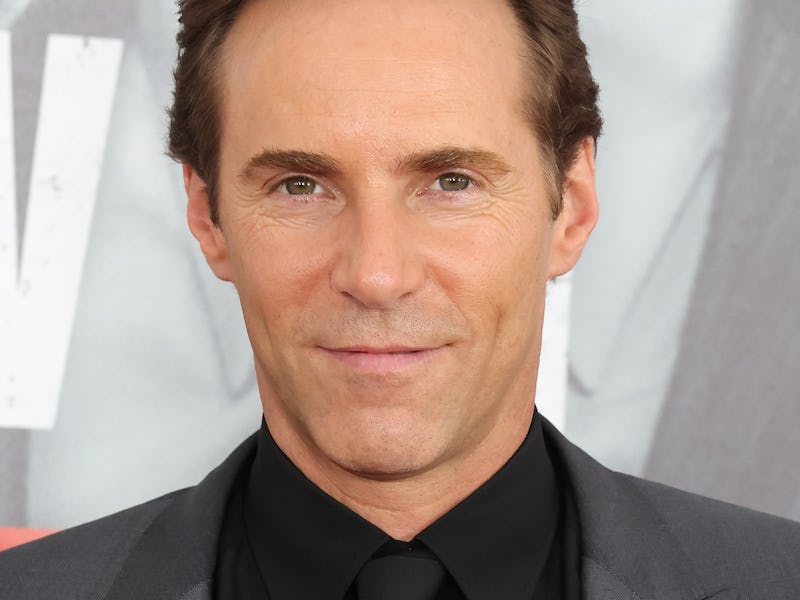
Getty
“Big things happen for stupid little reasons.”
'Many Saints of Newark' ending explained: Director reveals why [SPOILERS] dies
Why did [SPOILERS] kill [SPOILERS] at the end of Sopranos movie prequel 'The Many Saints of Newark'? We asked the director and star for answers.
by Jake KleinmanYou can’t make a Sopranos movie without killing somebody at the end, but given that The Many Saints of Newark is a prequel, the ending’s big death shouldn’t come as much of a surprise. (That’d be like watching Star Wars: Revenge of the Sith and gasping in shock when Anakin Skywalker becomes Darth Vader.)
The question of why a certain mobster dies at the end of The Many Saints of Newark is much more interesting, and the answer may come as a surprise to even the most devoted fans of The Sopranos, though director Alan Taylor hopes it’s in the spirit of the beloved HBO show.
“It’s very true to The Sopranos worldview,” Taylor tells Inverse. “Big things happen for stupid little reasons. The reverse is also true.”
What is Taylor talking about? Let’s dive in. (Warning! Spoilers ahead for the ending of The Many Saints of Newark.)
Many Saints of Newark ending explained
The Many Saints of Newark
In case you were looking at your phone at the end of the movie or you didn’t watch it at all (in which case, please do, it’s great), here’s a quick refresher on how The Many Saints of Newark ends.
The movie stars Alessandro Nivola as Dickie Moltisanti (Christopher’s father) as he rises through the ranks of the Italian mob. After doing a bunch of mafia stuff throughout the movie (including killing countless people, murdering his own father, making his dad’s wife into his goomah, killing her for cheating on him, all while feuding with a rival Black mob), Dickie is shot in the back and killed in the movie’s final moments.
You might think it was Harold (Leslie Odom Jr.), Dickie’s former employee and current rival, who called the hit, but you’d be wrong. Instead, the camera cuts to a quiet street at night where a phone both begins to ring. Junior Soprano (Corey Stoll) exits his home and crosses the street, still dressed in a bathrobe. He picks up the phone and a voice on the other end says simply, “It’s done.”
“I don’t think he even really knew why he was doing it.”
If this comes as a surprise, well, that was the point. Beyond laughing at Junior when he fell down at a funeral and hurt his back, Dickie hasn’t done anything to offend Tony Soprano’s uncle.
It’s a clever twist that works thanks to some thoughtful misdirection, and Taylor says he purposefully directed the movie to make you forget that Junior was mad at Dickie in the first place.
“There were a lot of micro-adjustments,” he says. “A lot of little telling moments in the movie, that we could dial up or dial down to see what was coming in. Little frictions between him and Dickie. Lots of moments of resentment. In the end, we dialed it all the way down pretty much.”
Why did Junior Soprano kill Dickie Moltisanti?
Junior Soprano (Corey Stoll) with his sister in law Livia Soprano (Vera Farmiga).
Good question! According to Corey Stoll, who plays Junior in The Many Saints of Newark, not even the character himself knows why he does it.
“I don’t think he even really knew why he was doing it,” Stoll tells Inverse. “That’s the real genius of the show. There are motivations that are based on power dynamics and protecting oneself and protecting one's turf. And then there's this whole other sort of family of motivations, which is just about personal resentments and petty squabbles. And often those are what lead to the bloodiest results. There were a lot of people who wanted Dickie dead for good reasons. It's tragic and pathetic that this is how it happened.”
“It’s absolutely true to his character.”
Director Alan Taylor confirms that yes, Dickie laughing at Junior’s injury is what lead to his own untimely death.
“The thing that pushed him over the edge was just a tiny, trivial moment,” Taylor says. “He falls, and Dickie laughed. I think it’s absolutely true to his character.”
Taylor adds that it’s also true to the spirit of The Sopranos.
“The fact that something as trivial as that that led to a major event that didn't just change Tony’s life, but changed Lydia’s life and created the world of the show, that feels very Sopranos to me.”
The Many Saints of Newark is playing now in theaters and on HBO Max.